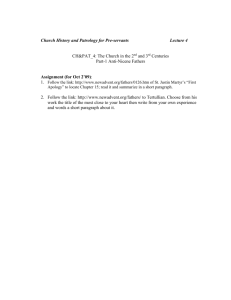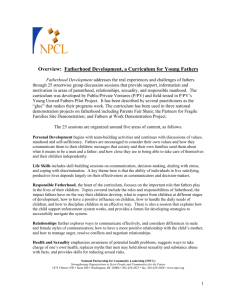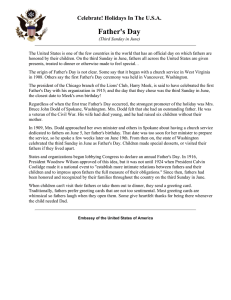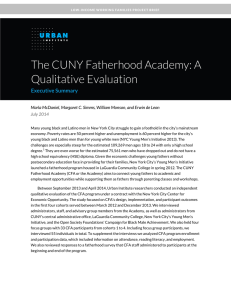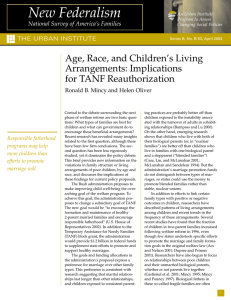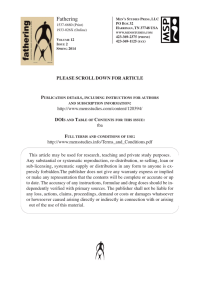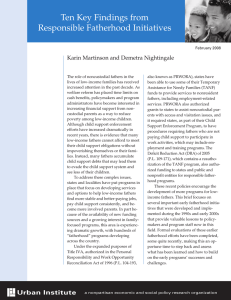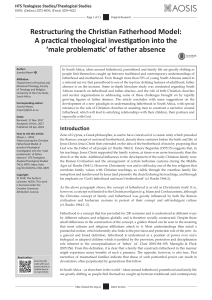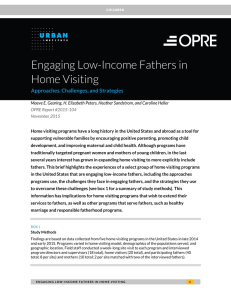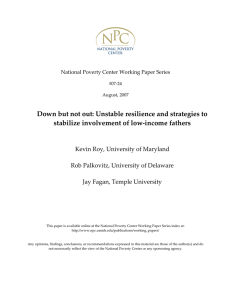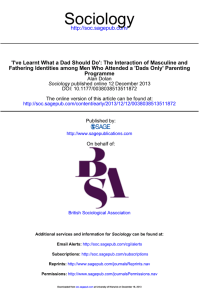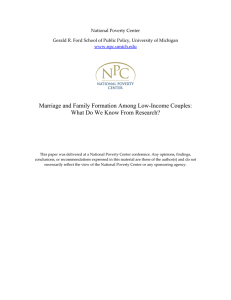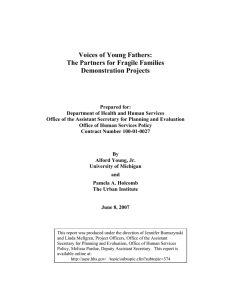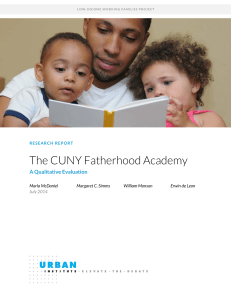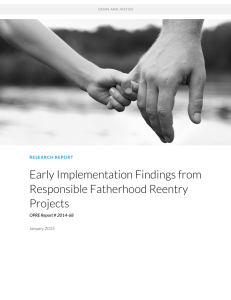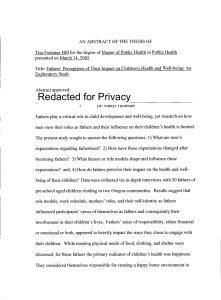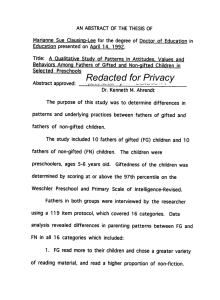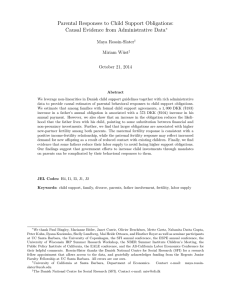Centennial Honors College Western Illinois University Undergraduate Research Day 2012
advertisement
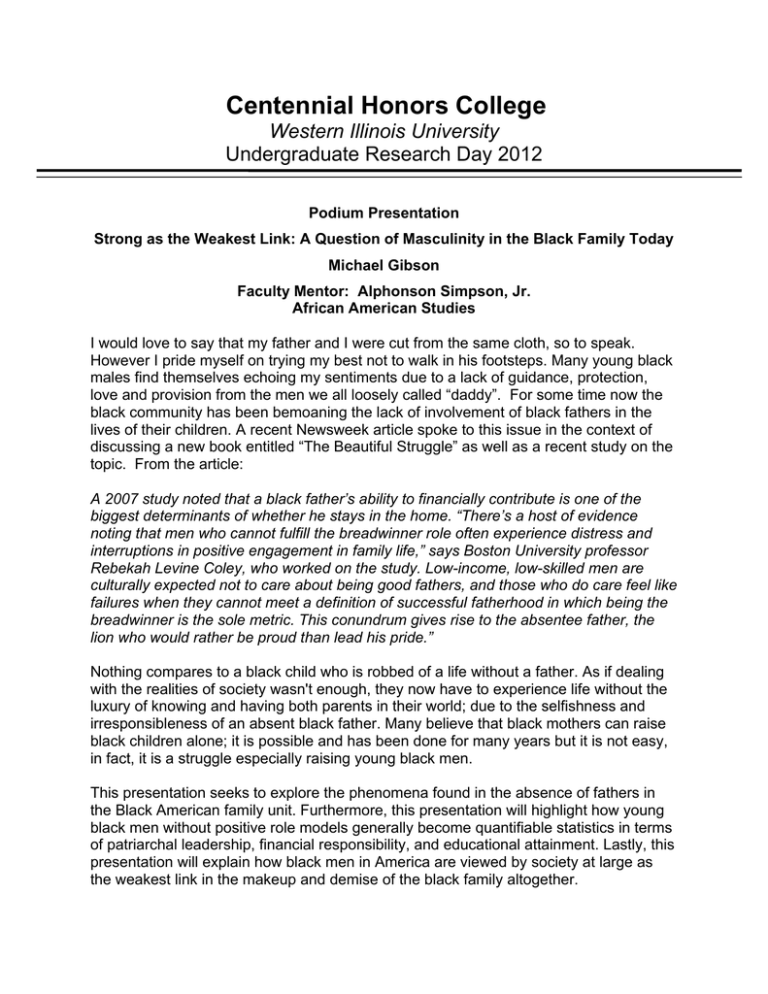
Centennial Honors College Western Illinois University Undergraduate Research Day 2012 Podium Presentation Strong as the Weakest Link: A Question of Masculinity in the Black Family Today Michael Gibson Faculty Mentor: Alphonson Simpson, Jr. African American Studies I would love to say that my father and I were cut from the same cloth, so to speak. However I pride myself on trying my best not to walk in his footsteps. Many young black males find themselves echoing my sentiments due to a lack of guidance, protection, love and provision from the men we all loosely called “daddy”. For some time now the black community has been bemoaning the lack of involvement of black fathers in the lives of their children. A recent Newsweek article spoke to this issue in the context of discussing a new book entitled “The Beautiful Struggle” as well as a recent study on the topic. From the article: A 2007 study noted that a black father’s ability to financially contribute is one of the biggest determinants of whether he stays in the home. “There’s a host of evidence noting that men who cannot fulfill the breadwinner role often experience distress and interruptions in positive engagement in family life,” says Boston University professor Rebekah Levine Coley, who worked on the study. Low-income, low-skilled men are culturally expected not to care about being good fathers, and those who do care feel like failures when they cannot meet a definition of successful fatherhood in which being the breadwinner is the sole metric. This conundrum gives rise to the absentee father, the lion who would rather be proud than lead his pride.” Nothing compares to a black child who is robbed of a life without a father. As if dealing with the realities of society wasn't enough, they now have to experience life without the luxury of knowing and having both parents in their world; due to the selfishness and irresponsibleness of an absent black father. Many believe that black mothers can raise black children alone; it is possible and has been done for many years but it is not easy, in fact, it is a struggle especially raising young black men. This presentation seeks to explore the phenomena found in the absence of fathers in the Black American family unit. Furthermore, this presentation will highlight how young black men without positive role models generally become quantifiable statistics in terms of patriarchal leadership, financial responsibility, and educational attainment. Lastly, this presentation will explain how black men in America are viewed by society at large as the weakest link in the makeup and demise of the black family altogether.

